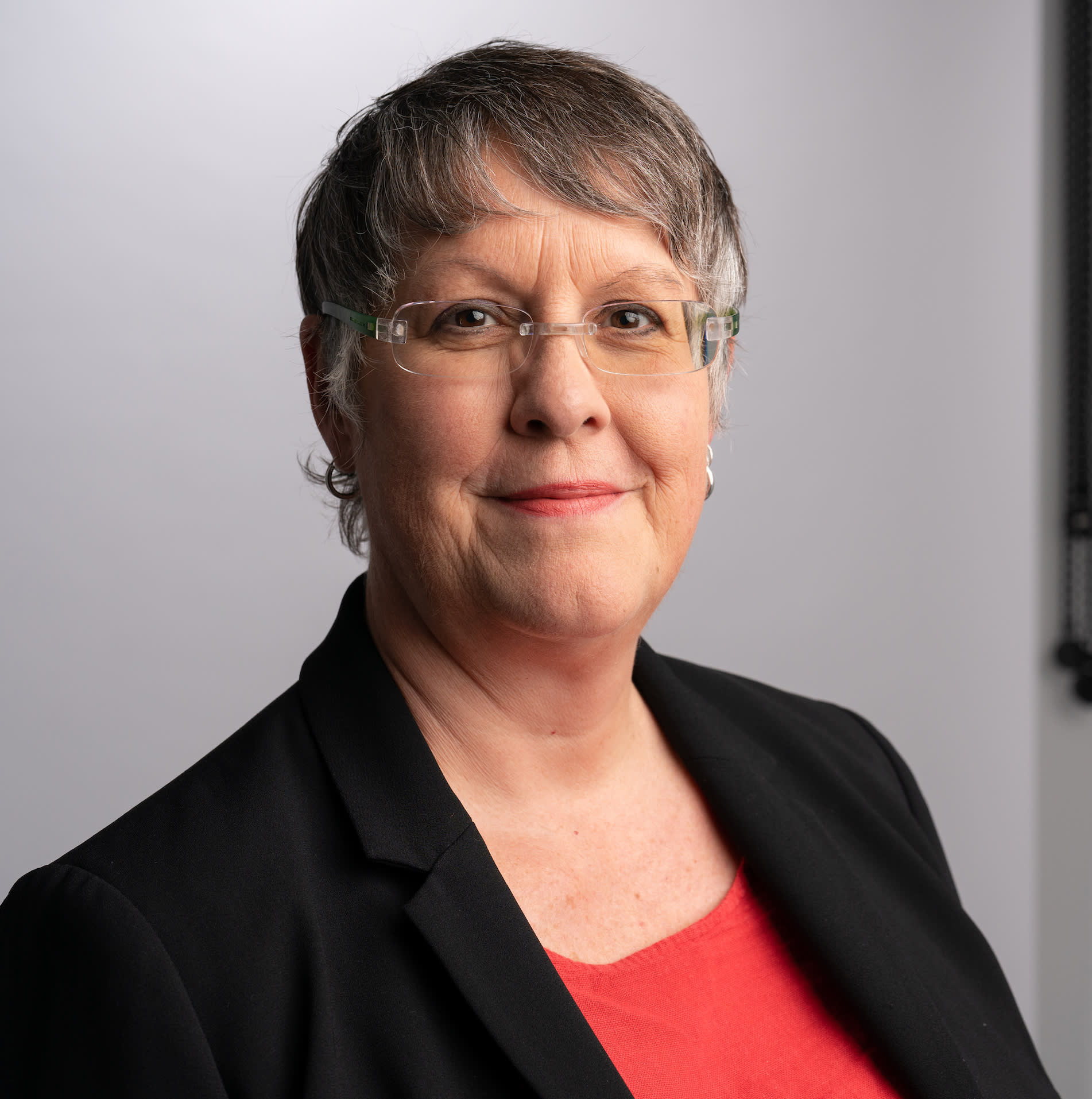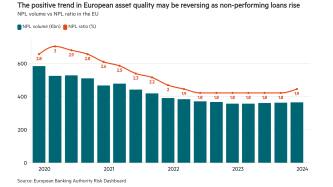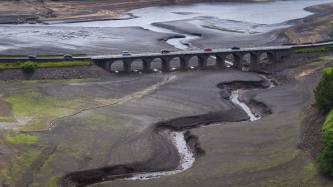Hakan Aran is a techie at heart, with a computer engineering degree from the Middle East Technical University. He joined İşbank as a software specialist in 1990 and was heading up the bank’s software development department by 2005. Three years later, he was promoted to deputy CEO responsible for operations, digital banking and technology.
In April 2021, İşbank appointed Mr Aran as its 17th CEO. He is currently continuing his PhD in banking at İstanbul Commerce University, focusing on the relationship between climate-related risks and banks’ capital adequacy ratios.
Q: What are the biggest challenges to operating in the Turkish market?
A: One challenge is the complex and ever-changing regulatory environment. We are going through a period in which loan and deposit growth is being shaped by strict macroprudential regulations. And there is still uncertainty over the timing and scale of the potential easing of such measures.
After the May elections, the commitment to return to conventional policies has been an important step in restoring confidence around the Turkish economy’s potential.
Another challenge for all decision-makers in Turkey is the high — and still increasing — inflation [which reached 58.9% in August]. This has been affected by the pass-through effects of exchange rate volatility, as well as global oil and commodity prices, which create a cost burden for all companies. Besides, in the short term we should also consider the ongoing impacts of the earthquake disaster on fiscal balance.
Q: How did İşbank help its customers in the aftermath of the recent earthquakes?
A: The nation started 2023 with great sorrow due to the earthquakes that shook the whole country. At İşbank, six colleagues and nine retirees, as well as dozens of their near relatives, lost their lives in this tragic disaster. In response, İşbank unveiled a heavy-duty aid package to provide comprehensive assistance for all those affected. From the first day the earthquakes struck, we delivered essential emergency aid to the regions affected.
Our focus is on society and leaving a positive mark on the future, not just on our financial results.
These earthquakes have illustrated how fragmented and irregular the scientific studies are. Preparing for a Marmara earthquake is one of our top priorities. This disaster would devastate the area of Istanbul and Marmara, which is geographically wide, densely populated and at the heart of Turkey’s industrial economy. We are working on the precautions that we need to take as a bank before such a disaster hits.
Q: How would you describe your bank’s social purpose?
A: Since its inception in 1924, İşbank has always worked to fulfil its social responsibilities. Our focus is on society and leaving a positive mark on the future, not just on our financial results.
Our main success criterion is the extent to which we contribute to the development of our society, country and the world. As such, our main initiatives are cultural, from archaeology to the visual and performing arts, as well as sports.
For example, we support Darüşşafaka, an institution that provides educational opportunities to talented children who lost a parent and have financial difficulties. Another example is our 20-year support for Tema, a Turkish foundation for combating soil erosion, for reforestation and for the protection of natural habitats. We are also sponsors of the Turkish National Olympic Committee for the Olympic Games in Paris next year.
Q: How does İşbank embed sustainability in its operations?
A: Sustainability is encoded in İşbank’s DNA through its founding mission. We have taken into account developing methodologies and continuously update our strategy. In April 2022, we joined the Net-Zero Banking Alliance and took steps towards managing the impacts arising from our loan portfolio, as well as setting our reduction targets relating to Scope 3 emissions. Our target is to reach net-zero emissions by 2050, including Scope 3, so we are supporting our customers’ transition.
We have also set targets to reduce Scope 1 and 2 emissions by 38% by 2025 and by 65% by 2030, and are committed to being carbon-neutral by 2035. We have already reached our 2030 targets.
More than three-quarters of our energy projects portfolio are renewable energy projects, as at the end of June. We established İş Energy Investments in 2022, so in addition to financing projects or acting as creditor, we are acting as a renewable energy company.
Our initiatives are not limited to reducing carbon emissions. İşbank also supports women entrepreneurs and we have committed to provide financial support of Tl100bn ($3.7bn) to women entrepreneurs within five years.
Q: How is İşbank engaging with the vibrant fintech community in Turkey?
A: I have a technology background, so engaging with fintechs is fun for me. İşbank is very active in the fintech community and was one of the early supporters in creating the start-up ecosystem in Turkey, which dates back to 2016. Start-ups are very good at leveraging technology and data, and they have an obsession with value creation and problem solving. These are the key activities needed for a digital economy and sustainable development, which is why we have shaped our vision to become the bank of entrepreneurs and start-ups.
To support this vision, İşbank has invested in ecosystem collaborations through incubation programmes, innovation centres and venture capital since 2016. This year, we are starting the 11th batch of our incubation programme, called Workup. More than 15,000 start-ups have applied to date and more than 100 start-ups have graduated from the programme.
We have also announced Workup Agri, Workup AI and Workup Gaming. We purposely diversified into verticals that reflect the spirit of today.
İşbank has opened two innovation centres — in Silicon Valley and Shanghai — to extend our engagement with global fintechs. The innovation centres provide us with the opportunity to introduce cutting-edge technologies to business units and operational functions, helping us develop an innovation culture. We are improving our efficiency and effectiveness by being a customer of those start-ups, instead of developing everything ourselves.
Employees from different functions visit the innovation centres, which helps to develop our talent and improve our employee experience, as well as increase employee loyalty.
Q: What are the main tenets of the bank’s ‘Bank of the Future’ vision?
A: Our vision is to continue to deliver a frictionless and hyper-personalised experience to our customers throughout their life stages, wherever and whenever they need financial services.
One of our highest priority areas is open, embedded or seamless banking. Through our application programming interfaces embedded in the ecosystem, customers can easily access our innovative products and services through multiple platforms, whether they be e-commerce platforms, digital marketplaces, and so on. Wherever they execute their daily transactions, İşbank is behind those transactions in an integrated and seamless way.
İşCep, our mobile app, reflects the bank of the future because mobile phones enable the remote control of everything. We launched İşCep as Turkey’s first mobile banking app in 2007; today it’s visited 10 million times daily by five million people, and has a rich set of 650 functions in both retail and commercial transactions.
To build the bank of the future, we need to understand the customer of the future and align with their expectations. We are designing a gamified banking experience, to meet — and even exceed — those expectations. In 2022, we launched the NAYS application and already have more than 2.3 million young users. Most importantly, more than half of them were not İşbank customers.
Artificial intelligence and large language models, such as ChatGPT, are important for providing a unique customer experience. For example, in future our virtual assistant Maxi will not only be able to respond to customer queries, but also proactively provide customers with relevant information tailored to their specific financial needs. We are heading towards a banking experience where İşbank understands — and even anticipates — our customers’ financial needs before they [come to us], and provides real-time advice and assistance wherever and whenever they need.
Q: Where does İşbank anticipate future growth?
A: All types of marketplaces, whether for real estate, car loans or purely e-commerce, will be our next channels. We will be there with special branches for entrepreneurs, farmers, small traders, and so on. The future of banking will not be limited to branches or mobile banking apps; it will be integrated through these platforms and daily activities.
The incorporation of Web 3.0 technologies will enable decentralised finance, which will likely overtake centralised finance as the dominant system. Merging traditional banking with blockchain and tokenisation will provide more transparent, secure and faster financial transactions.
Sustainability will also be a growth area. Supporting the green economy and transition will be the key activities of İşbank, and we will take all necessary actions to address global climate change, increase environmental awareness and strengthen the position of women in society.
Q: How will you celebrate İşbank’s 100th anniversary next year?
A: To mark the bank’s centenary, we have unveiled a new holding company: İşbank Group. We have carried out our mission by establishing and actively participating in companies across diverse sectors throughout the century and now we are uniting all these subsidies under a new entity.
Through the new structure, İşbank will continue its strategic investments, expanding into more sectors to further bolster the national economy. We are aiming to conclude the process by the end of the year, and the new holding company will emerge in 2024.













